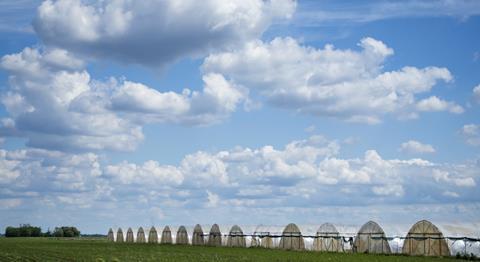Tunnel installation is a small price to pay for climate resilient food production and planning rules should reflect that, writes Nina Pullman

This week marks the third story I’ve reported on for FPJ in as many weeks with news of a polytunnel planning application being refused or thrown out.
There was the mushroom grower blocked from expanding into exotic veg in Hertfordshire, a refusal for three new tunnels at major berry producer Haygrove, and just today, I wrote about how berry and asparagus producer The New Forest Fruit Company has had its retrospective planning application for 15 tunnels blocked.
The latter may have been to expand the company’s vine and wine production venture, something that doesn’t directly affect the UK’s food self sufficiency, but overall the trend is concerning.
Yes, local residents have a right to object to installations they feel damage or ruin the beauty or heritage of their surroundings. But looking at the bigger picture, climate change is making production far too unpredictable to rely long-term on imports from some of the traditionally major suppliers to the UK.
Spain already struggles with alarming desertification and lack of water to some of its key producing regions, and is seeing increasingly extreme hot temperatures, as well as freak hailstorms. Water shortages will only get more difficult in many Latin American countries, and indeed across the world.
Of course, innovation is ongoing in all producer countries to mitigate the effect of a changing climate on production. But the UK needs to do the same, which is why polytunnels are so significant.
Not only do they provide the protection to crops that would otherwise fail in unpredictable cold snaps, heavy rains or even heat, but they can also help reduce the need for damaging crop protection products, in turn helping the UK to restore its much-depleted biodiversity.
While the new food strategy supposedly linked, for the first time, government departments responsible for food, farming and health, we need a much greater joining together of strategy. Planning rules for growers should take into consideration long-term environmental considerations of food production as a national priority.
It might be an irritation to drive past a polytunnel on your way to the school drop off or to see a beauty spot, but it will be a lot more irritating when there are increasingly regular shortages of fruit and salad on shelves, as retailers scramble for what is left in an increasingly climate-insecure global marketplace.



